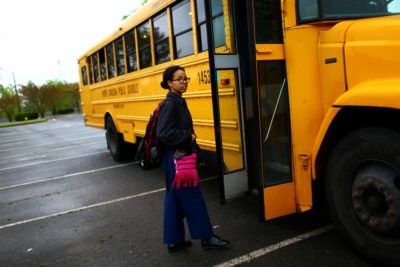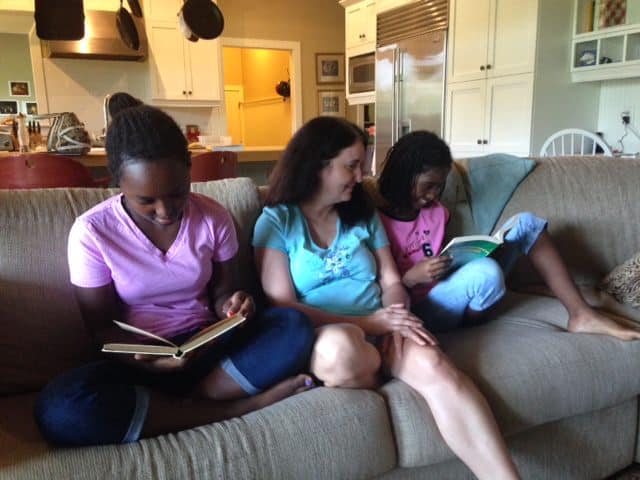

Schools work better when they have mutually reinforcing relationships with engaged parents – parents who encourage their children, support the work of educators, and participate in school activities that build community. It follows, then, that education-system administrators, school principals, and classroom teachers would want to know about parents’ aspirations and anxieties that shape their relationships with schools.
So, too, should elected officials and candidates in this super-heated election year. The Save the Children Action Network projects that as many as 20 million mothers with children at home will show up to vote in November. “Mothers represent a huge force in the American electorate,’’ says network president Mark K. Shriver.
In the week leading up to Mother’s Day, Save the Children and Shriver Media released the results of an online survey of 1,050 mothers likely to vote in 2016. The head of Shriver Media is Maria Shriver, TV journalist, former first lady of California, and Mark’s sister. The Shriver Media findings come from a nationwide survey and focus on the presidential election, but they have thought-provoking relevance to schools and politics in North Carolina.
The survey found mothers anxious and worried that the U.S. has become a more difficult place to raise children. Two-thirds of mothers said their children were less safe, with many expressing concern over bullying, sexual predators, and decline in moral values. As major worries, half of them cited increased violence, one-third over worsening economic conditions, and one-third over quality of education. Half of the mothers surveyed said they live paycheck to paycheck.
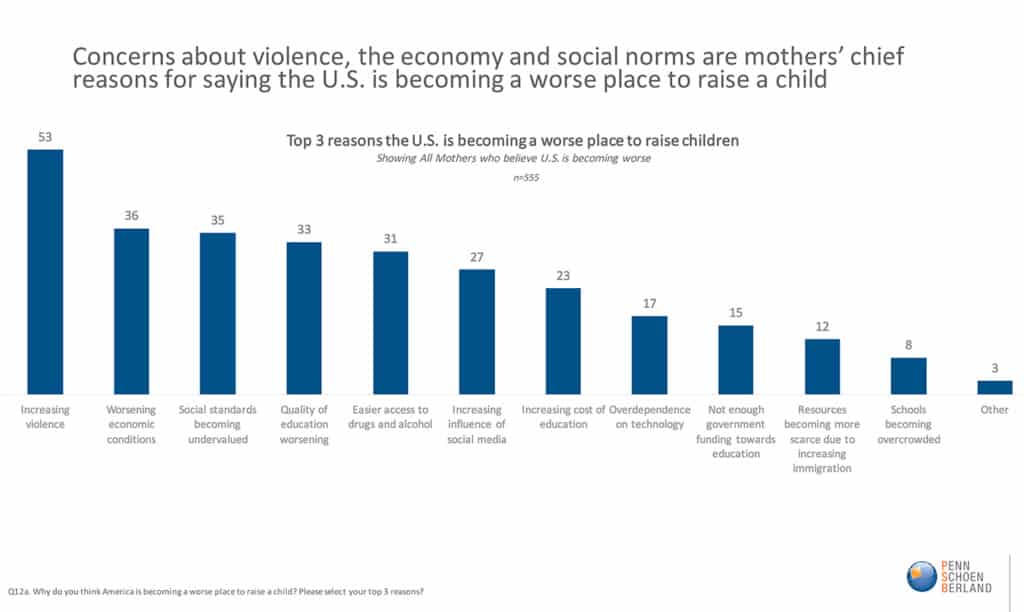

And yet, nine out of 10 of the mothers surveyed held onto hope and optimism about their children’s future – they still embrace the American Dream that education and hard work will lead to success. About two-thirds of Millennial moms (age 18 to 34) said they were “very optimistic’’ about their children’s future, far more than older mothers. The survey found black mothers the most worried about violence, but also the most optimistic about the future.
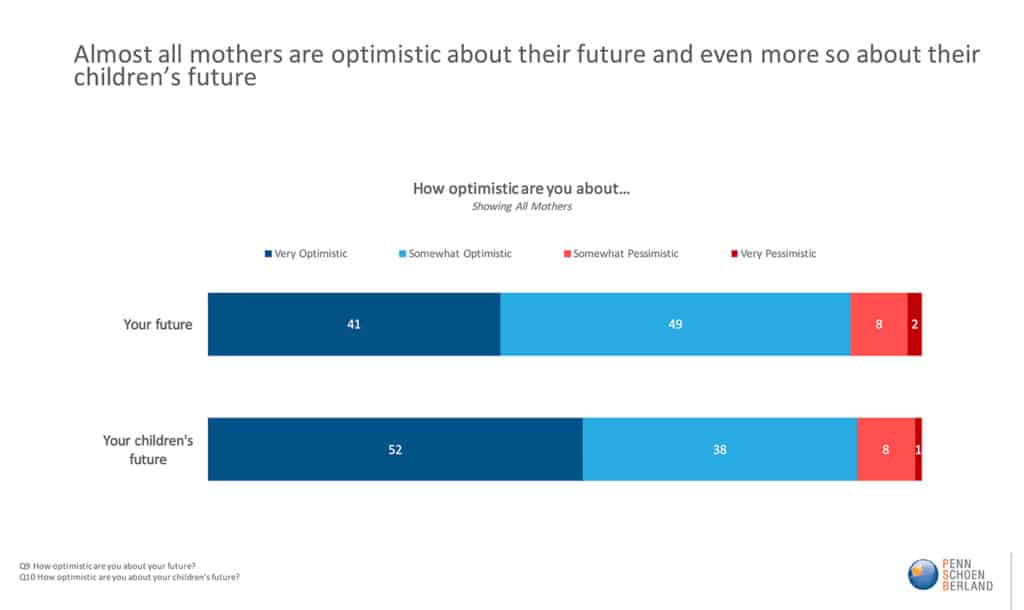

Asked what they would like the next president to accomplish to improve the lives of their children, more mothers by far ranked reforming education at the top than those who mentioned stabilizing the economy, expanding jobs, and making health care more affordable. In particular, more than eight out of 10 mothers said they would be more likely to vote for a candidate who supports expanding access and improving the quality of early childhood education. Mothers also want candidates to address high college tuition.
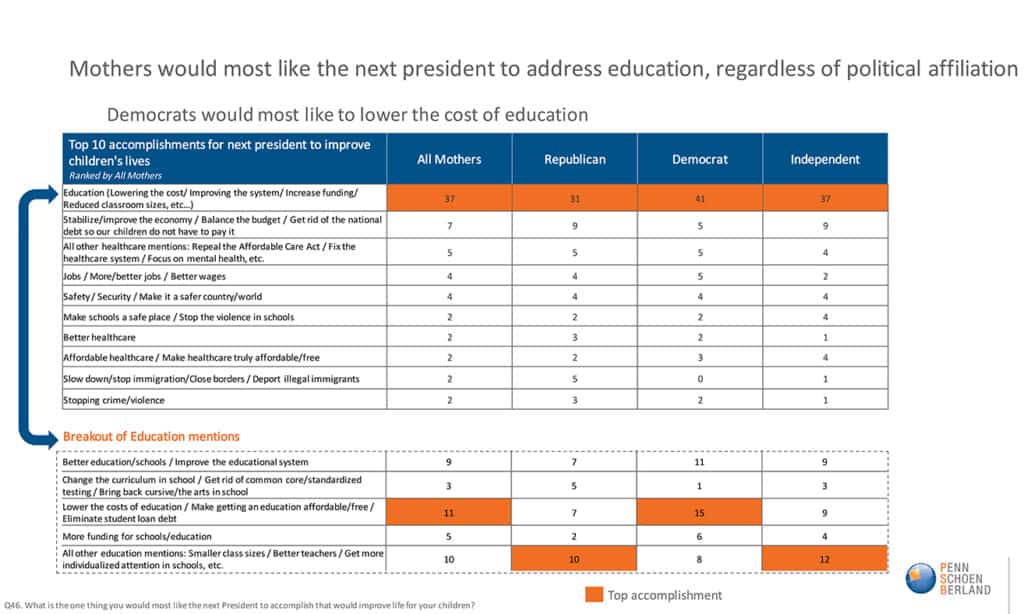

The survey also asked mothers what they worried the next president would do that would make life worse for their children. The number one answer: Get the U.S. into another war. The next three answers ranked about equally: Let the economy falter, raise taxes, and cut funding for education.
The survey also has findings about mothers’ attitudes toward social media, the qualities they seek to instill in their children, and expectations of corporate employers. Still, the Shriver-Save the Children analysis says bluntly, “An overwhelming number of American moms believe that education is the most important issue for business leaders, lawmakers and parents to address.”
Further insights come from a separate national survey of African-American and Hispanic parents for the Leadership Conference Education Fund, a research arm of The Leadership Conference on Civil and Human Rights. The fund commissioned a telephone poll of 400 blacks and 400 Latinos, as well as focus groups in Chicago and Philadelphia. Reflecting the new reality that their children now constitute a majority in U.S. public schools, the findings are in a report titled, “New Education Majority: Attitudes and Aspirations of Parents and Families of Color.”
According to the Education Fund analysis, black and Latino parents place their priorities on teacher quality, safety in schools, and higher academic expectations for their children. “In response to an open-ended question about the most important characteristic of a great school,” says the analysis, “majorities of both African Americans and Latinos volunteer teacher quality. No other element exceeded even 16 percent.”
This survey illuminates that black and Latino parents notice disparities in school funding and the quality of education provided. More than four out of five black adults surveyed and six out of 10 Latinos believe that their communities do not receive as much funding as white communities for schools. And one-third of African Americans were so critical as to say that U.S. schools are not “really trying to educate black students.” Both black and Latino parents, says the analysis, cite family support more than schools as critical in determining their children’s success.
Obviously, the survey reports from both the Education Fund and Save the Children/Shriver Media provide broad-gauge national data. In applying findings to state and local school systems, trends might bend one way or another according to differences among urban and rural counties, among people of different ages, income, and education levels. Still, as a whole probably more than not, North Carolina reflects national trends – and should, of course, pay attention to its mothers.
Links to sources:
http://mariashriver.com/blog/2016/05/10-things-you-didnt-know-about-the-american-mom-shriver-report/


